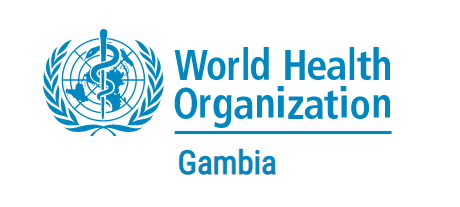Two years ago The Gambia carried out an analysis to better tackle the threat of antimicrobial resistance. The analysis, the country’s first of its kind, revealed a rising trend in multi-drug resistant tuberculosis as well as growing pathogen resistance to commonly prescribed antibiotics. Babanding Sabally, Director of National Pharmaceutical Services in the Ministry of Health, explains the measures being undertaken to address this public health problem.
What is the situation of antimicrobial resistance in the country?
In 2021, a situational analysis on antimicrobial resistance was conducted for the first time, to benchmark information on antibiotic consumption in hospitals and local communities, tallying it with resistance data gathered at laboratories.
The analysis was conducted to find out more about the bigger challenges in addressing antimicrobial resistance, including limited awareness among the public, lack of research, and weak surveillance that cuts across the human, livestock and environmental sectors.
It raises concerns about the growth of multi-drug resistant tuberculosis, Extended Spectrum β-Lactamase (a condition in which specific enzymes released by a bacteria neutralize the effects of antibiotics) and resistance to some commonly prescribed antibiotics.
The analysis shows that while health professionals have better awareness of antimicrobial resistance, 90% of hospitals do not implement antimicrobial stewardship programmes that measure and improve how antibiotics are prescribed by clinicians and used by clients. And governance of the medication use process in hospitals is weak.
Generally, lack of equipment, reagents for tests, adequately trained personnel and financial resources has hampered the full operations of most laboratories in the diagnosis, treatment and monitoring of antimicrobials and antibiotic residues in frequently consumed foods.
This analysis has helped us to lay a foundation to guide and strengthen antimicrobial activities in the country.
What measures are being taken to address antimicrobial resistance?
Considering the increased risk posed by antimicrobial resistance, in 2022 The Gambia developed a fully costed National Action Plan on Antimicrobial Resistance (2023‒2027), which identifies key measures to be implemented by 2027 to address antimicrobial resistance. The action plan is in line with the National Health Policy and covers environmental issues more broadly.
With the achievement of this milestone, the antimicrobial task force is working on implementing the activities of the action plan. Since the development of the action plan, the willingness and collaboration from partners involved in the One Health approach have been overwhelmingly positive. This approach is a holistic approach to antimicrobial resistance which focuses on human health, animal health issues and environmental issues.
The national action plan ensures that proposed One Health measures are feasible, valid and applicable within the Gambian context. It recognizes the need for sustainability amid resource constraints.
We hope to take advantage of this opportunity to come together to establish technical working groups and other bodies to oversee and advance the fight against antimicrobial resistance in the country.
In April 2023 we inaugurated a National Drug Therapeutic Committee. Part of its mandate is to aid in the selection of antimicrobials, implementation of specific interventions to improve the prescription and use of antimicrobials, developing and updating antibiotic guidelines and protocols, development of policies on antimicrobial procurement, quality assurance and improvement of compliance with guidelines and protocols. All these interventions are essential in the fight against antimicrobial resistance.
We have also trained one laboratory scientist in The Gambia on the WHO Antimicrobial Surveillance and Quality Assessment Collaborating Centres Network (WHONET) platform, called Global Antimicrobial Resistance and Use Surveillance System (GLASS), which aims to standardize worldwide antimicrobial resistance surveillance. This will help us to adopt the WHONET platform in all microbiology laboratories in the country and facilitate annual submission of data on antimicrobial data on the GLASS platform and improve our data management system.
What are the next steps?
A laboratory scientist from The Gambia recently participated in the WHO Antimicrobial Susceptibility Testing and Biosafety training in Johannesburg, South Africa. The training will provide the opportunity to learn new techniques in bacterial identification and antibiotic susceptibility testing and provide updates on important global guidelines on antimicrobial resistance. This will build our capacity to better profile antimicrobials.
Future implementation the action plan will be implemented through a coordinated multi-stakeholder platform of collaboration and partnership, shared accountability and transparency over a five-year period, with periodic reviews of implementation.
We also have ongoing antimicrobial stewardship at the Edward Francis Small Teaching Hospital in Banjul, the only teaching hospital in The Gambia.
All the activities and milestones achieved so far in relation to antimicrobial resistance in te country have been spearheaded by WHO’s country office in The Gambia, with financial support from the Kingdom of Saudi Arabia.
Distributed by APO Group on behalf of World Health Organization (WHO) - The Gambia.
Latest Stories
-
Government could seek more IMF funding, incoming finance minister Ato Forson says
30 minutes -
Man told he can’t recover £598m of Bitcoin from tip
47 minutes -
Gun-wearing leader sparks concern at Mahama’s inauguration
57 minutes -
Boeing and Google give $1m each to Trump’s inauguration
1 hour -
TikTok to make final plea at Supreme Court against US ban
1 hour -
Supreme Court rejects Trump bid to halt hush-money case sentencing
1 hour -
Man with crocodile skull in luggage arrested at Delhi airport
2 hours -
Mozambique tense as opposition leader returns from exile
2 hours -
Morocco receives 17.4 million tourists in 2024, up 20% on 2023
2 hours -
Nigeria, China deepen ties with pledge on security, finance and economic growth
2 hours -
Shell writes down Namibia oil discovery in blow to country
5 hours -
Bellingham helps Real Madrid reach Spanish Super Cup final
5 hours -
Murray could not turn down ‘unique’ Djokovic opportunity
5 hours -
‘Trump 2.0’ looms large over the global economy
5 hours -
Ivory Coast president signals he would like to run for fourth term
6 hours

